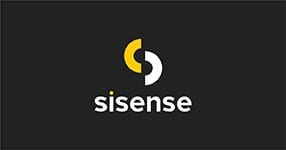
Burnout is becoming a workplace bugbear with the added stresses of the pandemic and working from home. Employees are at the end of their tether. Technology companies need to keep in mind the well-being of their employees to make sure they thrive in the workplace and want to continue working with the company.
A recent PerkBox survey said there is a 74% chance employees in the technology industry will face stress.
The easing of lockdown restrictions and a return to offices in the UK are raising the stress levels of over a quarter of tech professionals (26%). At the same time, over 1 in 3 (36%) report that their mental health has deteriorated during COVID-19, according to a Harvey Nash study.
With everything going on, more employees now than ever are beginning to be concerned about their mental health. Harvey Nash reported 27% are actively concerned about their mental well-being now, 35% say this is the first-ever time they have been concerned.
The pandemic has opened employers’ eyes to well-being. 56% of companies have increased the level of personal/emotional/home working support provided during the crisis. However, Harvey Nash research shows half of the employers still don’t provide formal support for mental health issues.
This is having a significant impact, with 75% of those working for unsupportive companies being either concerned about their mental health now or in the past. That drops by a quarter amongst very supportive companies. Staff at unsupportive companies are also more likely to have seen their mental health deteriorate during the lockdown.
Fixing the problem
Tech companies should also find ways to make their employees lives easier and make them feel supported in their roles.
The most important thing companies should be doing is listening to their employees no matter what the occasion. All managers need to have open minds and ears when their employees are feeling burned out.
Leaders should offer their staff opportunities to speak their minds and give anonymous feedback about the company without fearing for their job. Employers need to have open minds on the feedback and be ready to make changes to support their staff.
According to CW Jobs, as early as the recruitment stage, employers can help reduce stress levels of potential staff by highlighting what the company is already doing to alleviate burnout. Employers should also make sure they are clear and precise about what jobs are needed to be done in the job description to avoid future stress and confusion.
Some companies offer self-development opportunities such as the option to be a mentor or mentee, learning opportunities like seminars and personal development and the ability to be open about their future career plans.
Great Place to Work highlighted some of the ways employers can reduce the risk of burnout. These included:
- Enable more fluidity and autonomy
- Protect employees from micromanagement
- Help employees know their boundaries
- Create one on one connections
- Limit uncontrollable events
Who is getting it right?
Amir Orad, CEO at Sisense, strongly advises creating “self-care days” for all employees. He explains that leaders can’t just initiate and create a fantastic work culture and move on. It never ends.
“One initiative we used during COVID-19 to maintain our work culture was to offer employees “self-care” days, which was a day off each month dedicated for employees to take time to themselves, recharge, be with their families or sleep in– whatever they needed for that day was up to them.
“The key was (and still is) that the self-care day is mandatory, we insist everyone take the day off together and make it legitimate to be away from zoom and email. The feedback we received from employees was that they felt supported and seen during a difficult time,” Amir explains.
Amir was once a victim of burnout during his career. He knows first-hand how important it is for people within the fast-paced technology sector to re-evaluate their work/life balance, reset priorities, and find time for themselves and their families.
He says, “Working 24 hours a day doesn’t make you better and answering every email doesn’t make you wiser. I failed with that early on. I quickly burned out trying to do it all and became non-productive. It took me a lot of time, courage and discipline to stop working 24 hours a day and realise the importance of not just relying on myself but relying on my team.
“I learned that when I let go a bit and trusted my colleagues around me to help with important projects and solutions, everything improved. Today, I live a full life. It means both my professional and family life are balanced in their own ways. I have the support of my family in my personal life and the support of my team in my professional life. You must have both. It’s very important.”
What are Self Care days?
Sisense self-care days and overarching thoughtful, innovative strategies towards employee well-being have led the company to be recently named a Fortune and Great Place to Work’ 2021 Best Workplaces in New York’, coming in eighth.
At Sisense, we worked hard this past year to support our employees throughout COVID by initiating meeting-less days once a month, as well as ‘Coming up for Air’ extended weekends and Self Care days where everyone would have the day off to spend time with family, and simply disconnect from work duties.
This exemplifies just one of our values, which is caring and is defined as being passionate about helping each other out and picking each other up when they need it most.


























